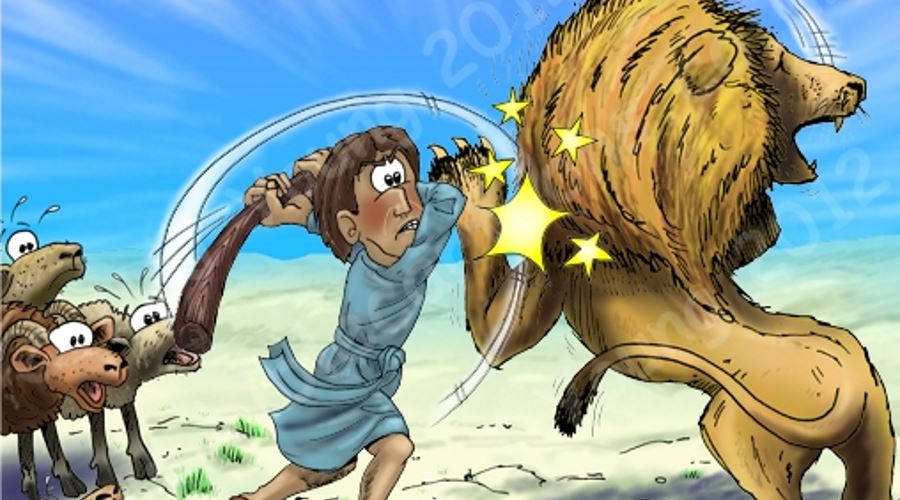 Read some of our Latest articles.
Read some of our Latest articles.
In my opinion the best television series ever broadcast was The Twilight Zone. Its combination of great writing, great acting, suspense, social relevance, and pure entertainment value can’t be beaten. Not every episode was outright frightening. Some episodes of The Twilight Zone (“From Agnes with Love” starring Wally Cox, and “The Ring-a-Ding Girl” starring Carol Burnett) were funny. Some (“The Changing of the Guard,” and “Two”) are hopeful. Most of them are suspenseful. All of them contain surprises. Some are menacing and nightmarish.
The scariest episode of The Twilight Zone ever, in my opinion, is one titled “It’s a Good Life.” In this episode the quaint farming village of Peekville, Ohio is under the control of a 6 year old boy named Anthony, played to creepy perfection by Billy Mumy. If he doesn’t like you he can wish you into the cornfield. He can do other unpleasant things as well - make three-headed gophers, kill your pets, or cause it to snow in the summertime. Anthony decides everything for everybody, and the only acceptable response is “It’s a real good thing you did Anthony…a real good thing.” It’s all very stressful. There is a moment in the episode when Anthony is distracted and one of the men pleads with the others to kill him, but they can’t bring themselves to kill a 6-year-old boy. And so, Anthony’s reign of terror continues, and that man is wished into the cornfield.
Can we imagine a world that frightening - a world controlled by someone with the emotional maturity of a six-year-old bully, and who has immense power over the rest of us? Yes, I think we can.
We seem to have a high tolerance for bullies nowadays. Men who behave badly, who say rude things, who exploit others, who push others around, who take every cheap shot available, who insist they are the best at everything, and who put their thumb in the eye of anyone who doesn’t approve seem to populate the fields of sports, entertainment, and politics (especially politics). I believe we Christians must reject the example of such men, and we must learn to deal with them as Christians.
That we should reject such men seems like it should be so obvious to a disciple of Jesus that my words will be superfluous – I am afraid they are not. Let me offer the following passages which make it clear such behavior is unacceptable: The Four Gospels, Acts, Paul’s letters, Hebrews, James, Peter’s Letters, Jude, John’s writings.
How does one deal with a bully? This is a skill-set we must acquire as our culture becomes more vigorously Darwinian (I am speaking of Social Darwinism). We know that we must never overcome evil with evil, but with good, and that as much as it depends on us we must be at peace with all (Romans 12.17-8). But what do we do when confronted with a bully?
Jesus says, “When someone strikes you on your right cheek, turn the other to him also” (Matthew 5.39). In other words, Jesus says, “When you face a bully don’t hit back and don’t back down.” These are fine words, but they are more than words - Jesus lives them:
One of the officers standing by struck Jesus, saying, “Is that any way to talk to the High Priest?” Jesus answered him “If I have spoken wrongly, show me. If I spoke correctly, then why did you strike me?” John 18.22-23
Jesus does not hit back, neither does he back down. He stands his ground and speaks the truth. This is how Jesus deals with a bully, and as his disciples this is the way we must deal with one as well.
Of course, those moments when we are confronted by a bully are usually dominated by the impulses of our fight-or-flight hormones and our limbic brain. A primitive, hair-trigger response will be our impulse and our action if we are not prayerful, and forearmed with the skills Jesus both teaches and models for his disciples.
Don’t hit back, and don’t back down – this is what Jesus teaches and what He does.
- Barry Bryson
So many commercials warn us about hidden fees. My favorite is the one where the fees crawl off the page like insects and infest a family in their living room. Hidden fees can really gouge a person in the wallet. I remember joining my first record club when I was fourteen or so, and seeing the great prices in the catalogue – then adding on the shipping and handling fees. What is “handling” anyway? There is another commercial out where a guy in a white tuxedo and blue gloves goes around touching products ready for sipping, “I do all the handling,” he says.
Hidden fees can really add up. I was at a congregation once which had a new deacon as treasurer. He went through every line of every bill looking for hidden fees, and ended up saving the congregation more than $1000 a month. Perhaps the best example of hidden fees from American History comes from our first President. When George Washington was commissioned by the Continental Congress to be commander in chief of the Continental Army, he famously and nobly refused any salary – asking only that his expenses be covered. Congress agreed. Had he received a salary for the 8 years of the war he would have been paid just shy of $50,000. His meticulously kept expenses, published by congress in 1803, totaled $449,261.51 (a sum that would amount to around $5,000,000 in today’s dollars). This included everything from boot-black and handkerchiefs to more than $6000 some months for wine and spirits.
Sometimes relationships are fraught with hidden fees. People often seem to offer help, sympathy, support, and their hearts freely – but really they are expecting princely sums in return. Congregations can be that way as well. God never is.
There are never any hidden fees with God. He is always honest with us. I was struck by this fact during our Sunday morning Bible class on Revelation. Most of the book is about God’s punishment of the Roman Empire for its persecution of Christianity. At the beginning of chapter 18 the fall of Rome is announced (verses 1-3), there is a brief passage affirming the justice of the fall (4-8) and then 11 verses (9-19) lamenting the fall. Rulers, merchants, sailors, and tradespeople weep because now that Rome has fallen there will be no infrastructure, nor bureaucracy to provide for safe borders, safe seas, and safe trade. This happened of course. The fall of Rome was followed by the Dark Ages – which were “dark” for everyone, the faithful included.
One might expect that after the fall of the Evil Empire a utopian paradise on earth would follow – ding dong the witch is dead – but no, that is not what happened historically, and God, in prophecy, tells us the truth of what will happen. He always does.
“Every day has enough trouble of its own,” “The world hates me, and it will hate you as well,” and “Everyone who seeks to live a Godly life will be persecuted,” are all reality checks that God provides….just in case we believe the “abundant life” promised us means cupcakes and Shetland pony rides (see Matthew 6.34, John15.18-19, and II Timothy 3.12).
What the abundant life means is that we have a Good Shepherd who leads, feeds, and protects us (see John 10.1-18, and Psalm 23). Our part is to love the Lord with all our heart, soul strength, and mind, and to love our neighbors as ourselves (Mark 12.29-31). This sums it up. God keeps every promise. He tells us plainly how we are to be and how things will be in this sinful world. There are no hidden fees, handling charges, or reimbursements expected.
- Barry Bryson
When David was arguing for the right to face Goliath, he mentioned that he had already killed a lion and a bear (I Samuel 17.34-37). He went into great detail about how he snatched a lamb from the very mouth of the beast, and, grabbing the predator by the hair, struck and killed it. He attributes this remarkable behavior to the presence and power of God, not to any bravery or skill on his part. Facing the lion and the bear were necessities for David. As shepherd, it was his responsibility to protect his flock.
II Samuel 23.20 tells us that one of David’s mighty men was famous for killing a lion as well. After David’s death, II Samuel lists his “mighty men.” Benaiah’s greatest achievement is “climbing into a pit to face a lion on a snowy day.” What an intriguing picture that paints. How did the lion come to be in the pit? If the lion was safely confined in a pit why was Benaiah compelled to climb down and face it? Where was he, that this battle took place on a snowy day?
Perhaps the most hilarious chapter in Cervantes’ Don Quixote is the episode where his hero faces a ferocious and hungry lion. The chapter (Book 2, chapter 17) begins with his squire, Sancho Panza buying curds, and putting them in his master’s helmet (which is, after all, just a barber’s bowl). When Don Quixote seizes the helmet quickly to prepare for battle he smashes the bowl of cottage cheese on his own head. Don Quixote then stops a caravan bringing two African lions (a male and a female) to the King of Spain. They are due to eat soon and are hungry. Don Quixote insists that the male lion be released, and he bravely stands to face it. When the lion is released he stretches, yawns, washes his face like a house-cat, turns his rump towards his adversary, and lays down for a nap.
We think of lions as sitting atop the food chain. They are the “king of beasts” in our imagination. Lions are big cats, and even medium sized cats are frightening. Would any of us think of cuddling up to a cat as large as Golden Retriever, or a Saint Bernard? We may laugh at Don Quixote, but we do not doubt his bravery.
Cervantes’ Knight-errant is fictional. David and Benaiah were flesh, blood and bone men. We read of their encounters with awe. We wonder at the rare bravery such men possess. We must use our imagination to ponder persons of such bravery because few of us possess it. Thus David and Benaiah become mythical figures....like Paul Bunyan or Hercules. We cease to think of them as persons of common abilities and challenges.
This raises two large concerns. The first is that we treat the Bible like Nathaniel Hawthorn’s Wonder Book – a collection of fantastic myths. The second is that we forget we face the lion every day.
Your adversary, the devil, prowls around like a roaring lion looking for someone to devour. Resist him, standing firm in the faith, because you know that your brothers throughout the world are undergoing the same kind of sufferings. I Peter 5.8-9.
Nothing could be more common than facing a lion, on snowy days and sunny ones. Nothing is more universal than the need to battle a lion. Facing a lion is as quotidian a task as brushing your teeth, or bringing in the mail. And yet it is no less fraught with danger than we imagine facing a lion might be. Our spiritual lives are at risk. We will not survive if we are not even aware of being stalked. But if we stand and fight, this lion will flee (James 4.7).
As David understood, God makes us equal to the task if we will take our stand. That power is commonly available. But we must be aware. We must make a stand.
Truman Capote’s autobiographical short story, “A Christmas Memory,” is a favorite because of the portrait he paints of his great aunt Sook who raised him. I had a great aunt Sook, who, thankfully, did not raise me. His aunt Sook was kindly, wise, and caring towards everyone. My aunt Sook lived up in the hills in a tar paper shack with a one-eyed Pekingese dog, whose name was “Dog.” She kept Dog tethered to a chenille davenport with eight feet of tow chain. The tethering was superfluous because a Pekingese dog attached to eight feet of tow chain isn’t going anywhere.
Capote’s aunt Sook is a favorite because she reminds me of so many older folks among whom I was raised. She says things like “yonderways,” and “blaze like a Baptist window,” and she is very concerned about “not taking His name in vain.” The folks who raised me were concerned about that too. Not only could one never use the names of the Deity in a frivolous manner, but words like “gosh,” and “I swear” were forbidden as well (my grandma would go as far as to say “I Swan” …whatever that means).
This was because the folks who raised me took seriously the third commandment, “You shall not take the Name of Yahweh your God in vain” (Exodus 20.7). It was a matter of great respect for them, and although the commandment is not repeated in the New Testament, they believed the passages concerning blasphemy (Colossians 3.8, I Timothy 1.13, I Timothy 6.1 among others) communicate that God’s name must be respected still – so also God’s image.
The grown-ups who taught my Sunday school classes were also clear on that subject. Images of God and Jesus should be illustrative if used at all. The second command makes clear that idols of any sort are forbidden (Exodus 20.4-5). The King James Version uses the phrase “graven image” instead of “idol” which I prefer since the Hebrew word pesel, used in the text, means something fashioned by hand. Those Christian adults who raised me believed that law remains in force as well, violating the same New Testament passages mentioned above.
The first Christians held similar beliefs. For at least the first three centuries of Church history Christians would not paint, carve, or chisel an image of God or Jesus. Nowadays we seem to lack the same respect – or any respect. Not only do we freely use images of Jesus in illustrations and as advertising, we use disrespectful images. I cringe every year when the flyers for VBS material begin to arrive. Accompanying their Madison Avenue titles (“Hiking with Jesus up Sonshine Mountain,” “Surfin’ with Jesus on Sonshine Beach”) is the artwork portraying Jesus surfing, or rock-climbing – and for some reason Jesus always looks like the eighth dwarf.
But I have a different use of His image in mind as I write these lines. It seems folks are sharing a series of images of Jesus hovering around our president like a Divine bodyguard, eager to give His imprimatur to anything the president decides to do next. I have seen a few of these and I find them more than offensive. I find them blasphemous. I am not on Facebook, and so in my chosen and blissful ignorance I don’t know if any of you have shared such images, but if you have, and are – stop it. Stop It.
This last divisive election has left open wounds in our country, our culture and our congregations. Thoughtful, prayerful, reasonable people could easily find either (or both) of the major party candidates objectionable. To endorse either with the graven image of Jesus is disrespectful to those of differing opinions, and disrespectful of Jesus Himself. My strongly held opinion is that such artwork violates the Second and Third commandments, and is blasphemy.
Maybe we differ on this point, but I think we all must agree that trading such images, and engaging in the angry political exchanges they prompt, violates this simply stated command:
Let each of us please his neighbor for his good, to his edification. (Romans 15.2)
Amen.
Sometimes the smallest phrase, the lightest stroke of the brush, the briefest glimpse can change the entire meaning of an experience. The comedian Dimitri Martin says the six letters in the little phrase “sort of” can have this effect: “I love you…sort of,” or “It’s a boy!...sort of.” The ending of M. Night Shamalan’s movie The Sixth Sense forces you to reinterpret the entire film. The last line of Harry Bates science fiction classic The Day the Earth Stood Still has the same effect.
Diego Velazquez does something similar in his painting “A Lady with a Fan.” Painted between 1633 and 1635 is shows a beautiful, mature woman dressed mostly in black. She is either a Duenna, or in mourning. Her dress is accented with delicate white lacework, and a single ribbon, tied in a bow. Just below the ribbon there is a daub of red paint, about the size of a thumb print. It changes the whole painting. The woman’s face takes on a reddish glow of health. It is a visual effect achieved by the daub of red paint. The daub does not represent anything. Its sole purpose is to give the rest of the painting a red glow.
I have always tried to highlight the last phrase of Matthew 6. We tend to read right past it, but if we listen to it, it has the same effect on the Sermon on the Mount as that little red daub on Velazquez’s painting – it changes the tone and color of the entire composition.
Therefore do not worry about tomorrow, for tomorrow will worry about itself. Each day has enough trouble of its own. Matthew 6.34
Jesus has just spent several verses telling us not to worry, that God will take care of us. He takes care of the grass of the field, and the birds of the air, and He loves us infinitely more. Just when we think we are being cuddled and coddled and promised sunshine and rainbows we get the line, “each day has enough trouble of its own.”
The Sermon on the Mount is a mountain itself. It looms on the horizon of a Christian life the way Mount Fuji dominates the Tokyo skyline. Its claims upon the Christian are absolute. The life it challenges us to lead will demand every ounce of our energy, every fiber of our will. It is tempting to think of it as a hurdle too high for the average person to clear. Matthew 6.34 fastens the Sermon to the earth, to real life. A man who says, “Each day has enough trouble of its own,” is a man who looks at life with clear eyes. Such a man takes a realistic view of the world and the humans in it.
And so, when such a man, with feet planted firmly on Terra, says things like “love your enemies,” “do not judge lest you be judged,” and “be perfect as your heavenly Father is perfect” we know it is possible.
Matthew 6.34 may be the most important verse in the entire sermon because it ties the sermon to earth. It communicates that the life Jesus describes is intended to be lived – by all of us, not just the best of us.
The sermon, of course, tells us how this is possible. First, God provides. The Beatitudes tell us all the ways God rewards, comforts and strengthens us. Second, we are not tethered to the earth. The Beatitudes tell us we are God’s Children, we are of the kingdom of heaven, our treasure is in heaven, and we are connected to the past and the future.
Thus we are equipped to live such a life in such a world.
Of course the daub of red that colors this sermon, and this life is the blood of Christ. There are no direct references to the crucifixion in the Sermon on the Mount, but we know that moment is waiting for Jesus, as does Jesus. His sacrifice makes everything in the sermon possible. If we always, always keep that sacrifice in mind it will change everything else.






